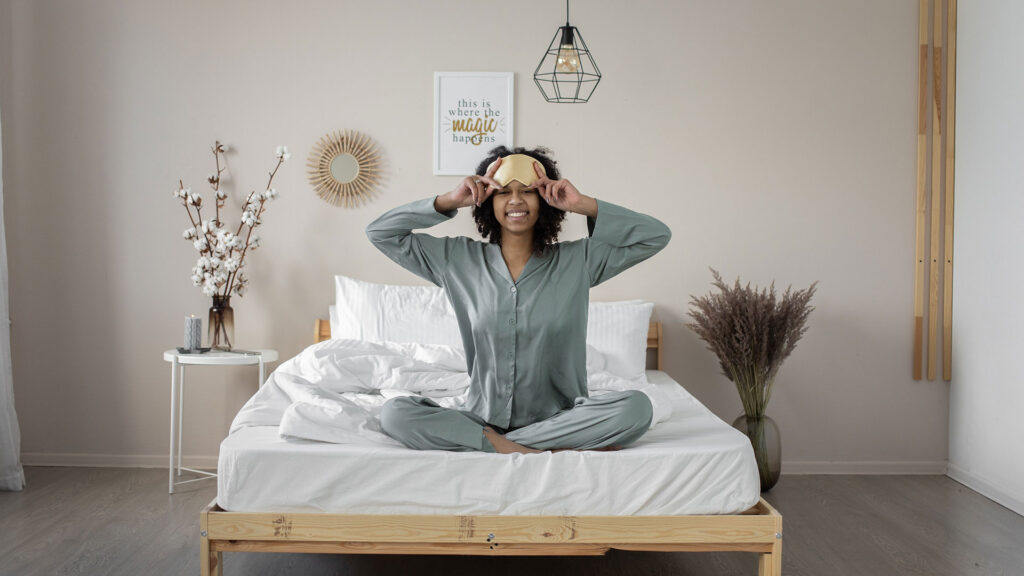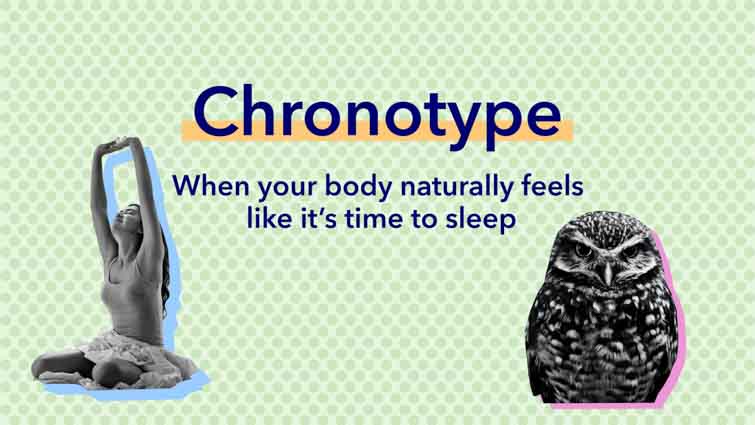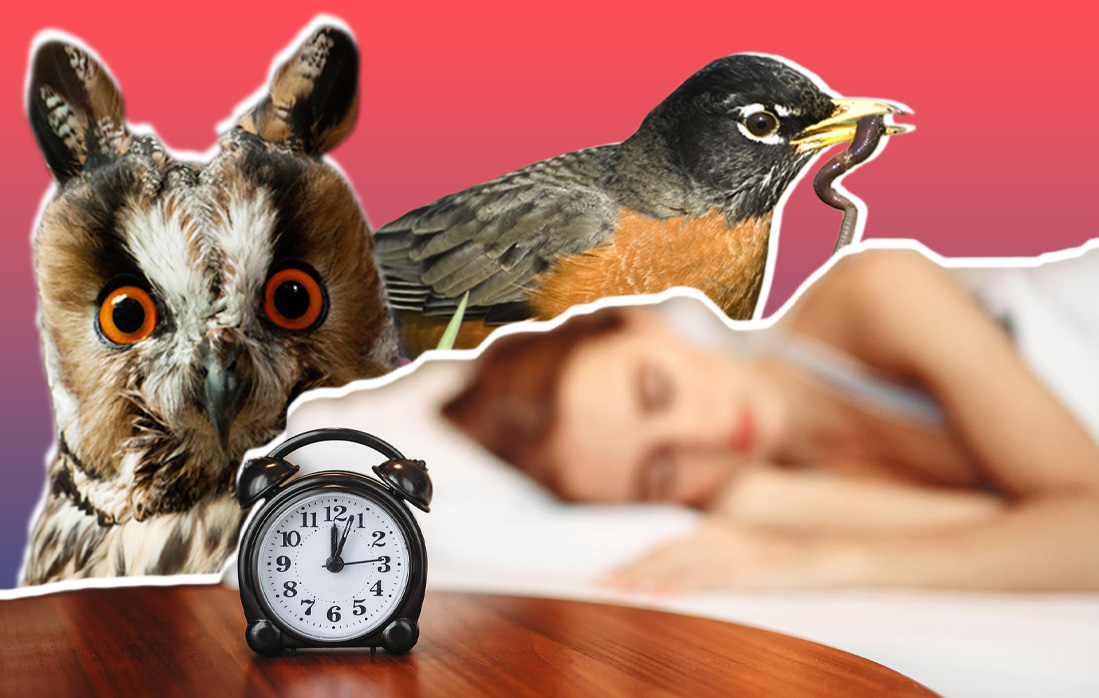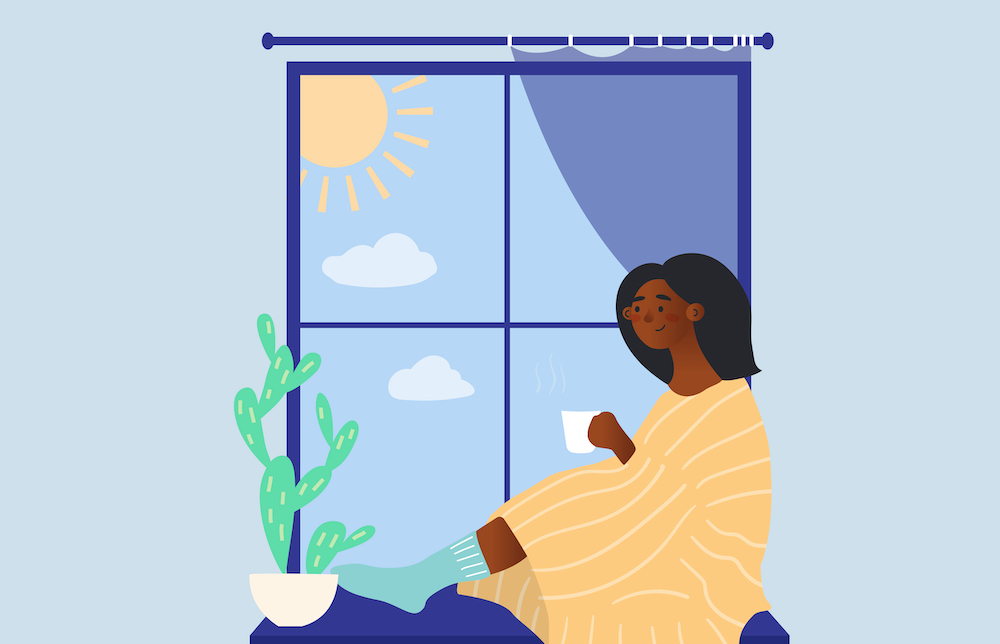
Morning people and night people. Larks and night owls. Early birds and late sleepers. People typically lean one way or another, although some say they are neither. These two groups may fight over how late to stay out on the town or how early to get up on a Saturday, but does one group have higher health risks than the other?
A recent study published in Annals of Internal Medicine found that women aged 45 to 62 who preferred to stay up late were 72 percent more likely to develop diabetes over the seven-year study period. (1) How did they get this information? Over 63,000 female nurses participated in the study, which involved answering a questionnaire every two years from 2009 to 2017.
These women were asked the question: “One hears about morning and evening types of people. Which ONE of these types do you consider yourself to be?” The response options were:
- Definitely a morning type
- More of a morning than an evening type
- More of an evening than a morning type
- Definitely an evening type
- Neither
Then, they were asked questions about their lifestyle, including amount of physical activity, alcohol intake, how much they smoke, and how well they sleep. Based on the answers, the researchers found that people who chose “Definitely an evening type” were over 50 percent more likely to also report unhealthy lifestyle choices.
Researchers believe these lifestyle choices, like poor diet and less physical activity, may hold the answer to why night owls developed diabetes more than early birds.
What Makes Someone a Night Owl?
Night owls have what’s called an evening chronotype. Your chronotype makes you want to go to bed early or late. (2) Experts have known for a while that we don’t choose our chronotype — it’s genetic. (3) So what makes night owls more susceptible to unhealthy choices?
Night Owl Choices Make a Difference
“Much of this [diabetes] risk is associated with known factors that are associated with both an evening chronotype and diabetes (BMI, activity, diet, sociodemographics), but some risk still remains,” (4) Dr. Jamie Zeitzer, PhD, co-director of the center for sleep and circadian sciences at Stanford University, tells Sleepopolis.
But being a night owl doesn’t automatically mean you make unhealthy choices. Maybe you like to go out on the town when the sun goes down or work out when the gym is less crowded. Perhaps you work in the evenings and stay busy until bed.
Sometimes, though, night owls can get pulled into hours of TV and snacking. The sun is down, your couch is cozy, and nothing sounds better than relaxing for an hour or four. So, if you like to stay up late, what can you do to stay healthy?
What Night Owls Can Do to Stay Healthy
The good news is you can still enjoy your night-owly ways and keep your health ship shape. By being careful not to fall into an hours-long sedentary snack-fest, you can enjoy your nights and avoid some of the health pitfalls that were found in the study. Here are some tips you can try:
- Budget your snacks ahead of time so you don’t lose track of how much you’re eating.
- Set a timer during TV time to remind yourself how long you’ve been watching.
- Take an evening stroll through your neighborhood or a nearby park.
If you’d rather try and get to bed a bit earlier, Zeitzer recommends you take it slow. “Shifting from a night owl to an earlier schedule should be done gradually,” he says. “Depending on how sleep deprived you are, it will be almost impossible to fall asleep earlier in large swings (anything larger than 15-30 minutes).”
Zeitzer adds your circadian rhythm is very sensitive to light, so timing out your light exposure can help retrain your system. “Gradually earlier exposure to morning light can help signal to your body that it’s time to wake up and start the day, thereby recalibrating your internal clock to an earlier time,” Zeitzer says. On the other side of the coin, the less you can expose yourself to artificial light in the evening can cue your body that it’s getting close to bedtime. (5)
“In addition to managing light exposure, using low doses of melatonin (less than 0.5 mg) several hours before bedtime will advance your circadian clock by a few minutes (making it easier to go to sleep earlier),” says Zeitzer.
Whether you’re up at the crack of dawn, or you like to watch the moon rise, it can be challenging to keep up good health habits. If you like staying up late, it doesn’t mean diabetes is inevitable. Everyone — no matter their sleeping preferences — can improve their lifestyle choices and overall health. If you feel concerned about your diabetes risk, you can talk it over with a healthcare provider. They can help you understand your body and come up with a plan for excellent health.

Chronotypes: Understanding Types & Impact on Sleep

Early Birds May Have A Lower Risk Of Depression, Study Finds

Can You Become a Morning or Night Person? Experts Weigh In.

Can The Circadian Rhythm Be Changed?
Sources
1. Kianersi S, Liu Y, Guasch-Ferré M, et al. Chronotype, Unhealthy Lifestyle, and Diabetes Risk in Middle-Aged U.S. Women: A Prospective Cohort Study. Ann Intern Med. Published online September 12, 2024:M23-0728. doi:10.7326/M23-0728
2. Chronotype – an overview | ScienceDirect Topics. Accessed September 15, 2024. https://www.sciencedirect.com/topics/psychology/chronotype
3. Jones SE, Lane JM, Wood AR, et al. Genome-wide association analyses of chronotype in 697,828 individuals provides insights into circadian rhythms. Nat Commun. 2019;10(1):343. doi:10.1038/s41467-018-08259-7
4. Baldanzi G, Hammar U, Fall T, et al. Evening chronotype is associated with elevated biomarkers of cardiometabolic risk in the EpiHealth cohort: a cross-sectional study. Sleep. 2022;45(2):zsab226. doi:10.1093/sleep/zsab226
5. Blume C, Garbazza C, Spitschan M. Effects of light on human circadian rhythms, sleep and mood. Somnologie. 2019;23(3):147-156. doi:10.1007/s11818-019-00215-x
6. Zeitzer, Jamie, PhD. Author Interview. September 14, 2024.